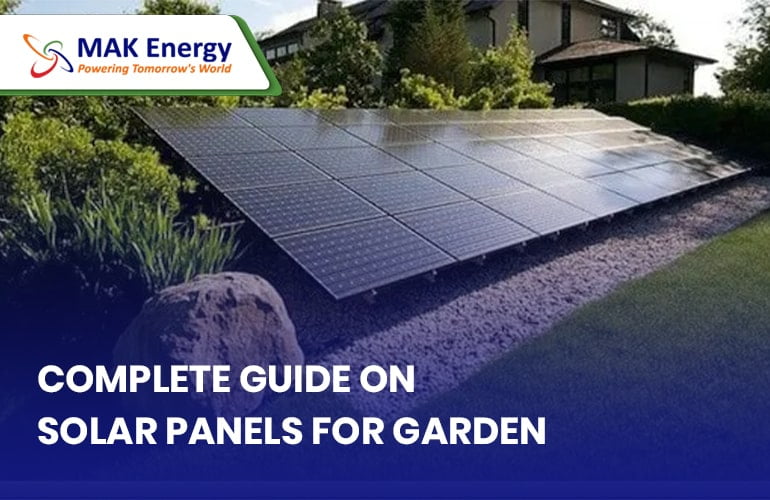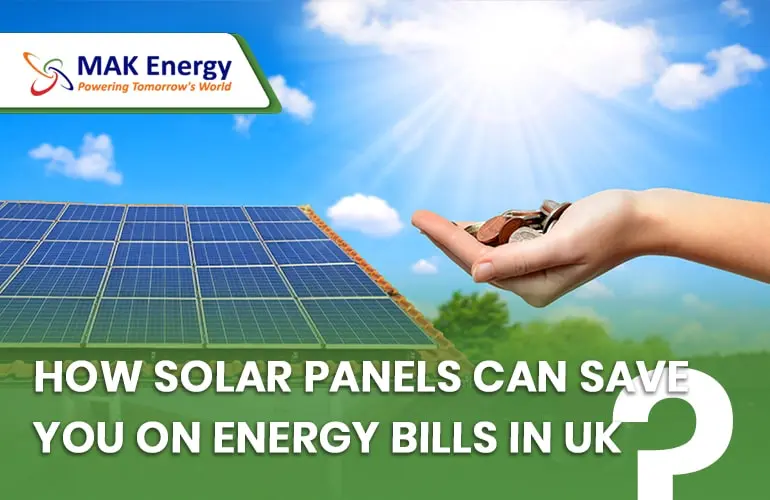If you are considering installing solar panels for your home in the UK, you may be wondering whether to opt for roof-mounted or ground mounted solar panels. While roof-mounted solar panels are a popular option, ground mounted solar panels are gaining popularity for several reasons. In this article, we’ll take a look at the pros and cons of installing ground mounted solar panels for your home in the UK.
Pros:
Increased Efficiency: Ground mounted solar panels are typically installed at an optimal angle and direction to capture the maximum amount of sunlight. This can result in increased efficiency and higher energy production compared to roof-mounted solar panels that may not always be installed at the ideal angle.
More Space: Ground-mounted solar panels offer more space for solar panel installation. This is especially useful if you have a large property or if your roof is already occupied by other installations such as a chimney or skylight. Additionally, ground mounted solar panels can be installed in a separate location from your house, which can be ideal if your roof is not strong enough to support the panels or if your roof needs repairs.
Easy Maintenance: Ground mounted solar panels are easier to access for maintenance and cleaning compared to roof-mounted panels. This can help prolong the lifespan of your solar panels and ensure they continue to operate at peak efficiency.
Flexibility: Ground mounted solar panels are not limited by the size, angle or shape of your roof. This means you can install more solar panels and generate more energy than with roof-mounted panels.
Cons:
Higher Cost: Ground mounted solar panels are generally more expensive than roof-mounted panels due to the additional costs associated with excavation and installation of support structures. Additionally, the cost of maintaining a ground mounted solar panel system may be higher due to the increased labor required for maintenance and cleaning.
Aesthetics: Ground mounted solar panels may not be as aesthetically pleasing as roof-mounted panels. This is because the panels and supporting structures may be visible in your yard. However, the design and placement of your solar panel system can be customized to minimize the visual impact.
Planning Permission: Ground mounted solar panels may require planning permission from your local council, especially if your property is in a conservation area or has other restrictions. You should check with your local council before installing a ground mounted solar panel system.
Location Limitations: Ground mounted solar panels require a suitable location that receives a sufficient amount of sunlight throughout the day. If your property is surrounded by tall buildings or trees, you may not be able to install a ground mounted solar panel system.
Sustainability Benefits of Ground Mounted Solar Panels
Clean Energy: Ground mounted solar panels generate clean energy, which means they do not produce any harmful emissions or pollutants. This makes them an ideal solution for reducing carbon emissions and mitigating the effects of climate change.
Renewable Energy: Solar energy is a renewable resource, which means it is sustainable and will not run out. By harnessing the power of the sun, ground mounted solar panels offer a long-term and reliable source of energy that can help to reduce our reliance on non-renewable energy sources.
Reduced Carbon Footprint: Ground mounted solar panels can help to reduce the carbon footprint of a property or business by generating clean energy. By reducing reliance on non-renewable energy sources, we can help to mitigate the effects of climate change and create a more sustainable future.
Energy Independence: Ground mounted solar panels can help to reduce our dependence on non-renewable energy sources, such as fossil fuels. By generating our own energy, we can become more energy independent and reduce our reliance on external sources of energy.
Cost Savings: Ground mounted solar panels can help to reduce energy costs, which can have a significant impact on a property or business’s bottom line. By generating their own electricity, businesses and homeowners can save on their energy bills and reinvest those savings into their operations or into other sustainability initiatives.
The Future of Ground Mounted Solar Panels
As the world becomes more conscious of its carbon footprint, the demand for renewable energy solutions is increasing. Ground-mounted solar panels are an effective way to generate clean energy, reduce carbon emissions, and promote sustainability.
In the UK, the government supported the growth of renewable energy by offering incentives and grants for the installation of solar panels. The Feed-in Tariff (FIT) scheme, for example, paid households and businesses for the electricity they generate from their solar panels, while the Renewable Heat Incentive (RHI) provided payments for those who generate heat from renewable sources. However, these schemes are no longer available.
The growth of solar energy in the UK is also being driven by falling costs. According to the International Energy Agency (IEA), solar energy is now the cheapest form of electricity in history, with the cost of solar power falling by 90% over the past decade. This makes it an increasingly attractive option for businesses and homeowners looking to reduce their energy costs while also making a positive impact on the environment.
Conclusion:
Ground-mounted solar panels are an effective way to harness the power of the sun and promote sustainability. They offer a range of benefits, including increased efficiency, more space, easy maintenance, and reduced costs. By generating clean and renewable energy, ground-mounted solar panels can help to reduce our carbon footprint, promote energy independence, and save on energy costs.
As the demand for renewable energy solutions continues to grow, ground mounted solar panels will play an increasingly important role in the UK’s transition to a more sustainable future. Whether installed on commercial or residential properties, they offer a practical and effective solution for reducing our reliance on non-renewable energy sources and mitigating the effects of climate change.




